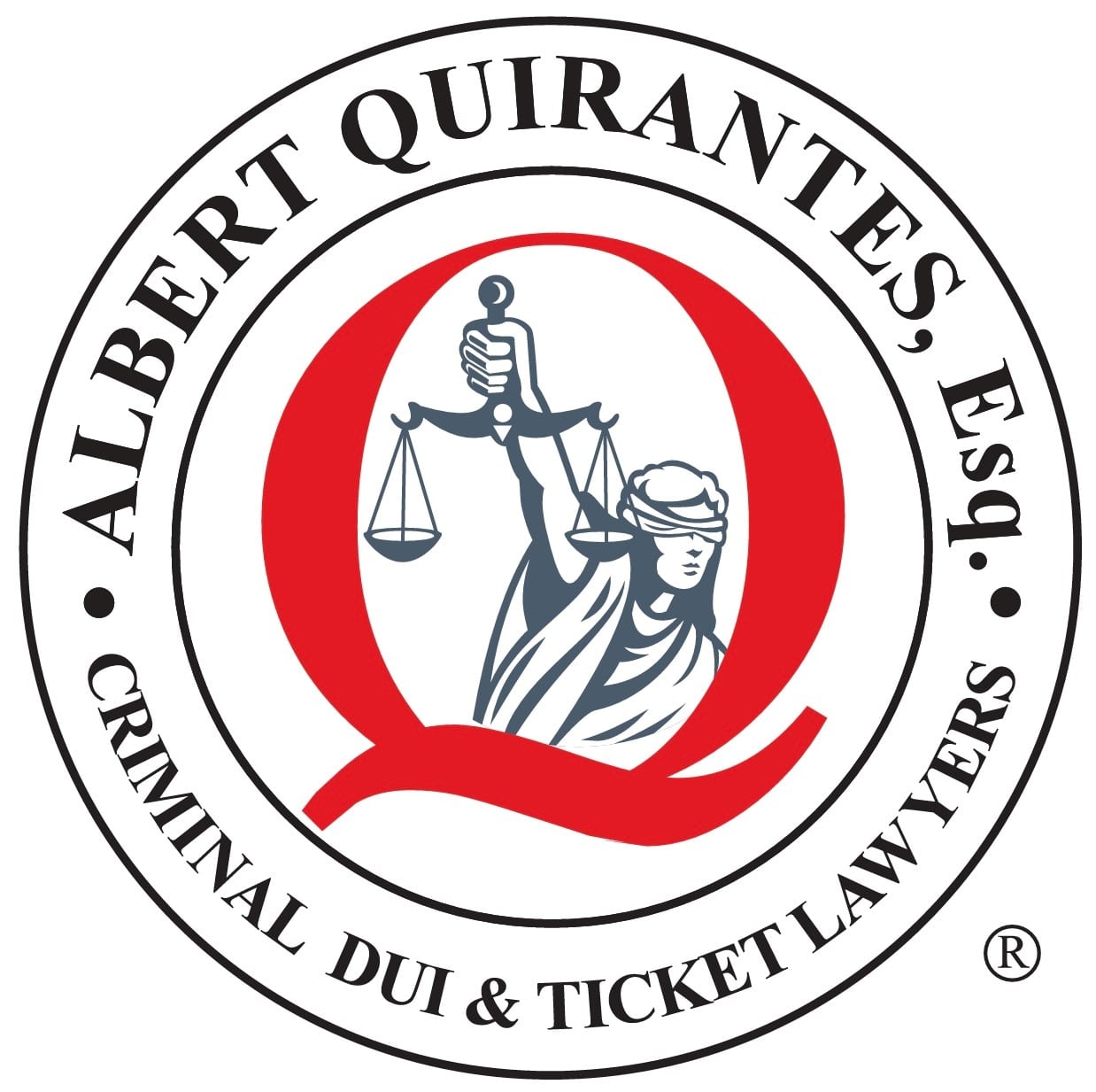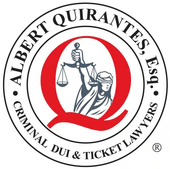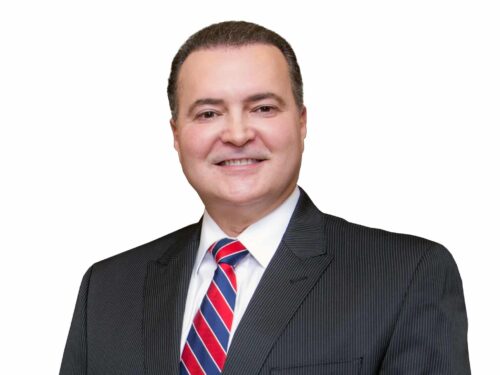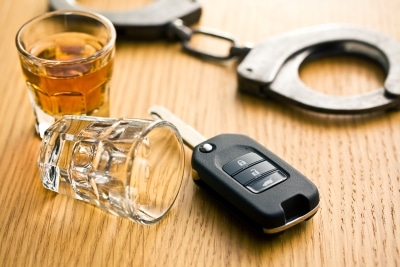By: Miami DUI Defense Attorney Albert Quirantes of Ticket Law Center, A Miami Criminal Defense Law Firm
Drinking and Driving can lead to a DUI arrest or even more seriously, an accident with injuries or death. What usually is not brought to light is that in many cases, DUI arrests are done with quotas in mind or by authorities seeking overtime for testimony in prosecutor’s offices or in court. Thus a person that “smells of alcohol” because of a drink or two may be arrested and not meet the definition of impaired in Florida.
We DO NOT ADVOCATE DRINKING AND DRIVING and strongly caution folks against doing so. If you drink and drive, It Will Cost You! You may be arrested and charged with DUI even if you are below the legal limit. Since it’s not illegal to drink and drive but to drive while impaired by drugs or alcohol, you may indeed not meet the legal standard yet find yourself arrested and at the mercy of the legal system.
As criminal defense attorneys who focus on the defense of DUI, we are interested however in defending those accused, with an eye not on putting a drunk driver back on the road, but in making sure a person who is arrested is not unfairly charged unless the crime can be proven.
Further, the charge of DUI leaves a great stigma on an accused driver and their family. First offenders are subjected to stringent minimum sentences with no flexibility. The person so charged has learned a lesson by the time the person is in court. We strive to minimize the impact of this sad event on a person’s life and that of their family. We also seek to rehabilitate our clients in the hope that any future similar event will be avoided.
With this in mind, we offer the following insight as to how we defend a DUI case:
- Contesting the Initial Stop
To stop a vehicle in the first place, an officer needs either “reasonable suspicion that criminal activity is afoot” or “probable cause that a traffic infraction was committed”. This is the interpretation of the Fourth Amendment’s prohibition against unreasonable searches and seizures of the United States Constitution given by the US Supreme Court and thus followed by the Florida Supreme Court.
The actual stop starts when an officer detains a person, or flashes the red and blue lights indicating they are pulling a car over and the driver realizes he or she are not free to leave. If the officer a lacked reasonable articulable suspicion of criminal activity or probable cause that a traffic infraction was committed, then the driver’s detention or stop is illegal and all evidence observed or obtained thereafter is subject to being suppressed or excluded from evidence in the case.
- Excluding the Cop’s Observations After a Stop
Officer’s initial observations after a stop are key in a DUI case. Although the officer needs reasonable suspicion of criminal activity or probable cause that an infraction occurred to stop the car initially, the officer needs Probable Cause that a person was impaired and in actual physical control of a vehicle to make an arrest for DUI.
So, they will be looking at the driver for signs of impairment by drugs or alcohol. Typical observations in most DUI cases include flushed face, bloodshot or watery eyes, slurred speech, the odor of alcohol, failure to maintain balance and using the vehicle for support while exiting among others. Most importantly, these supposed clues of impairment are present in many people for reasons totally unrelated to alcohol or drug impairment. These observations can be observed in people who are tired from working all day, wearing contact lenses, insomnia, smoking, illness and many other reasons. It’s up to your lawyer to argue these points successfully to establish a reasonable doubt.
- Contesting Admissions Made to Police by a Detained Driver
When a person is in police custody, prior to obtaining admissions or incriminating statements known as “testimonial evidence” from the accused, police must read a person’s rights to them. There is NO REQUIREMENT that a cop read you your rights prior to or after arresting you, but if they want to introduce what you say or use what you said to admit evidence against you, they must have read you our “Miranda Rights”. Miranda rights come from the US Supreme Court’s decision in Miranda vs. Arizona, 384 U.S. 436 (U.S. S.Ct. 1966).
These rights are:
- The Right to Remain Silent
- Information that anything said will be used against you
- The Right to have an attorney present prior to questioning
- The right to a publicly appointed lawyer for purposes of questioning if the person cannot afford a lawyer
Statements taken from a person without being advised of a person’s 5th amendment rights to incrimination and 6th amendment rights to an attorney can be suppressed. Having a lawyer set up the challenge is critical, if a person wants to prevail in having statements and evidence excluded from their criminal trial. The exclusion of evidence may lead to the dismissal or reduction of the case.
- Challenging and Excluding the Roadside Exercises
Exercises officer’s call Field Sobriety Tests are the exercises officers give motorists suspected of DUI after stopping them.
Some Roadside Exercises include:
Horizontal Gaze Nystagmus (HGN), an eye examination wherein a pen is moved from side to side right in front of the suspect. The officer is looking for a jerk in the eyes and how quickly the eyes jerk, to confirm alcohol is involved. This exercise was developed in a lab and use on the streets with all of the distractions and variables by non-medically trained personnel leads to questionable results. Yet police consistently use this to bolster their DUI case against a person.
Walk and Turn exercise, instructions are to take 9 steps in a line walking heel to toe, make a specific turn as instructed, and walk heel to toe back to the starting point.
One Leg Stand, lift legs six inches off of the ground, keep eyes closed and count out loud in a specific way as instructed.
Finger to Nose Test, close eyes, follow instruction to alternatively touch your nose with either left or right finger to the tip of your nose a number of times as instructed.
Some officer vary from the official National Highway Traffic Safety Administration’s (NHTSA) instructions on how to do these. This should be attacked. Even if the NHTSA manual is followed to the tooth, tests are only accurate to predict impairment by 55%-65%. This is certainly not proof beyond a reasonable doubt!
A good lawyer will know the NHTSA requirements and will compare them to the officer’s recorded results and will question the officer accordingly. This can lead to the exclusion of the evidence which can in turn cause the case to be thrown out for lack of probable cause of impairment.
- Fighting the Admissibility of a Faulty Breath
A faulty breath test is a breath test taken insubstantially in compliance with the Florida Statutes and the Rules promulgated by the Florida Department of Law Enforcement (FDLE) governing the purchasing, maintenance and operation of the breath testing equipment. Substantial compliance is required with all rules and regulations including forms to survive a challenge. This is where a lot of litigation takes place by lawyers who actually FIGHT DUI cases for their clients, rather than just negotiate pleas.
This is because the Florida legal limit for blood or breath alcohol is .08. If a person registers just .08, the person is presumed guilty of DUI by the government. However, the machine has a built in factor which can mean that the results can vary .02% up or down in one set of facts and as much as .05% up or down under another.
Further, depending on maintenance records and other actions by police agencies, the timing of the breath testing procedure, a proper 20 minute observation of the driver prior to obtaining a sample, the amount of samples obtained within a pre-determined variance of .02% or each other and other factors, the tests may be excluded altogether. At worse, an over limit result may be explained by your lawyer to the jury.
The best defense in a breath or blood alcohol DUI case is to hire an experienced lawyer who focuses on DUI defense. Never try to go at it alone.
- Keeping Out Blood Tests
Blood testing is good for hospitals to ascertain a person’s health and to determine what course of treatment should be taken. When taken for legal purposes, or to determine whether a person meets the legal definition of impaired, hospital tests may be overestimating the amount of alcohol in a person’s blood. Also, blood tests must meet a rigorous battery of statutory and regulatory rules prior to be determined admissible.
An officer cannot simply ask for blood to be drawn in a case unless a breath test is deemed impracticable or impossible, or there is an accident causing serious bodily injury. Otherwise, an officer needs a person’s consent.
Even the person drawing blood needs certain qualifications to be allowed to do so, such as being a licensed nurse in this state or a paramedic. The sample must be preserved in a specific fashion and a strict chain of custody must be observed.
A lawyer who concentrates on DUI defense can spot these issues by obtaining discovery, taking depositions and enlisting expert witnesses to assist in a client’s defense. Don’t attempt to do this yourself under any circumstances.
- Contesting the REFUSAL of a Breath, Blood or Urine Test.
Florida’s Implied Consent Law governs whether a refusal to submit to a breath, blood or urine test will be admissible in evidence against the driver. The officer has the duty of proving that the implied consent law was read to the driver and must have had probable cause to believe the driver was impaired due to the substance testing is required for.
Failure to prove the implied consent law was read including providing a notarized affidavit which must be sworn to attesting to this fact may constitute a reason to exclude the refusal to submit from evidence. This can lead to a reduction or dismissal of the charges.
Your lawyer can fight whether the law was correctly read and understood by you, whether the officer added or embellished factors to the law which caused your refusal improperly. A lawyer can also explain to unanimous jury the valid reasons as to why you indeed refused. There are many reasons a person refuses tests that are totally inconsistent with consciousness of guilt. That’s where the experience of a good lawyer comes in, to explain these reasons to the jury.
- Fighting Anonymous Tips Leading to a Drunk Driving Arrest
Numerous DUI arrests arise from anonymous tipsters reporting erratic driving by a specific vehicle type and color, etc. Many times officers immediately stop the described vehicle to investigate the report. A good DUI lawyer can spot these cases and will immediately recognize an illegal stop.
If the officer did not independently observe the erratic driving and describes it with particularity, a motion to suppress the illegal stop should be made. That’s because an officer cannot simply stop a vehicle based on the ‘hearsay’ of an antonymous tipster. Yet, unless the testimony is preserved, the proper motion is made, briefed and argued by a seasoned competent DUI lawyer, the issue may never see the light.
- Fighting any Criminal Case by Enforcing your Speedy Trial Rights
In Florida, there is a right to a speedy trial based on the rules of criminal procedure. These rules are strictly enforced as interpreted by the Florida Supreme Court and District Courts of Appeal. Besides the constitutional right to a speedy trial, except when waived by the defense by asking for continuances or not being available for trial, a person charged with a misdemeanor must be brought to trial within 90 days and for a felony, within 180 days.
After that, the person has the remedy of notifying the court of the violation and an additional window of five plus ten days exists and if not tried within that time period, the person is forever discharged of the crime.
Furthermore, if a person has waived their speedy trial right due to a legal necessity, they can reinvoke a 50 day speedy trial time window by filing a Demand for Speedy Trial in writing. The same rules apply if the person is not brought to trial within the time period assuming the person has a bonafide desire for a speedy trial.
Avid defense attorneys who truly fight for a client’s right, consider this rule a stalwart in the protection of personal liberty, especially when a client is being held in jail.
- Plea Bargains and Negotiations Leading to a Dismissal or Reduction of Charges
A lawyer from the state attorney’s office is assigned to every DUI trial. This assistant state attorney also known as the prosecutor will fight for the State’s rights and will defend the officer’s position in your prosecution.
Just as the State has lawyers fighting for it, you should have an experienced and aggressive lawyer fighting for you. The stakes are too high not to.
Your lawyer has ways of persuading the prosecutor to reduce the charges against you to a lesser charge such as a traffic non-criminal infraction, a criminal traffic violation with no adjudication and the possibility of sealing the entire event from your record or a civil or criminal violation with a conviction rather than a DUI conviction.
It’s up to your lawyer to point out the weaknesses in the state’s case or cause the Court to weaken the State’s ability to prove it’s case, to then negotiate an amicable resolution which benefits all parties. The State does not want to lose it’s case and neither does your attorney.
With a lawyer who focuses on defending DUI cases, known to go to trial and win cases, the prosecutor is much more likely to allow gentle persuasion to effect a good plea negotiation. Your lawyer can also negotiate pre-trial diversion (PTD), pre-trial intervention (PTI), deferred prosecution (DP) or back on track program (BOT) in many instances, depending on the jurisdiction. This will allow you to get your case reduced or dismissed without the risk of trial or the expense of litigation in many cases.
Albert Quirantes, Esq. is a Criminal Defense Lawyer who has been fighting DUI cases since 1988. He is the founding and managing partner at Ticket Law Center, P.A. a Miami-Dade Criminal Defense law firm that concentrates in the Defense of DUI, Suspended License and Criminal Cases. He can be reached at: 305-644-1800 or amqmessages@hotmail.com, with offices located at: 1815 N.W. 7th Street, Miami, Florida 3125.





